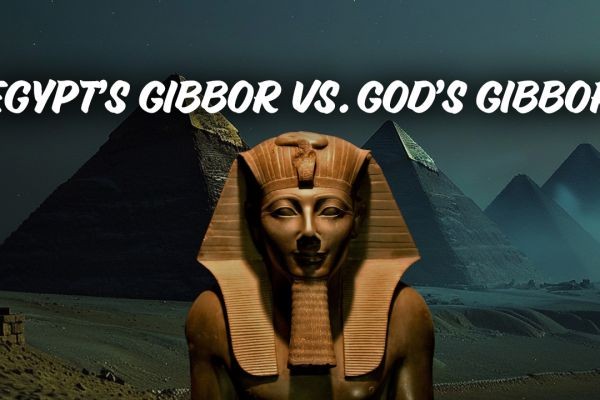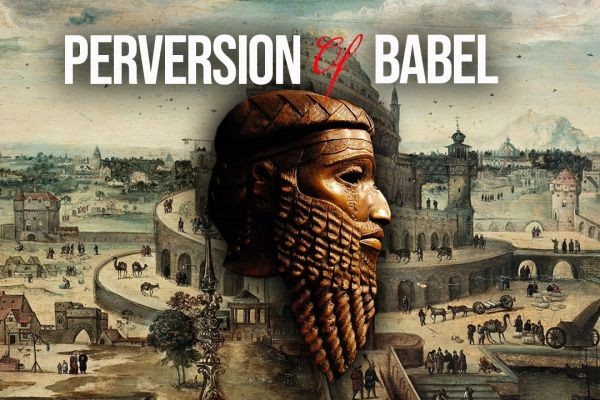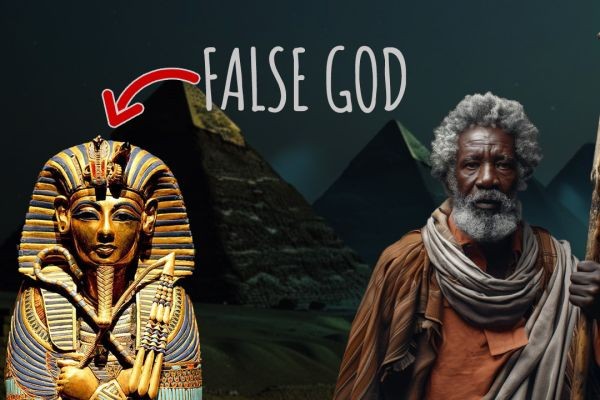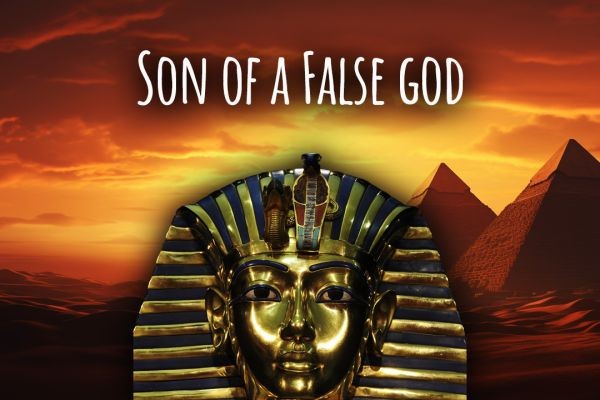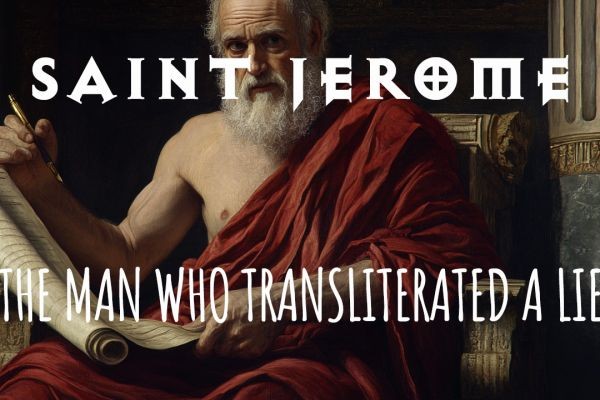In this article I point out why Yahushuah treaded on the sea. Yahushuah's actions were a mockery of the beliefs held by the Ugaritic, Canaanite, and Phoenician cultures. Isaiah wrote extensively about..
04/22/25 • 277 المشاهدات
“22) [And] [shortly after] [Jesus] [persuaded] [his] [disciples] [to hop] [into] [the] [boat] [and] [to go before] [him] [to] [the] [opposite side] [so that] [he {could} send away] [the] [crowd of people] 23) [And] [after sending away] [the] [crowd of people] [he ascended] [{to} the] [mountain] [by] [himself] [to pray] [and] [{when} evening] [had come] [he was] [there] [alone] 24) [but] [the] [boat] [now] [{in the} middle] [of the] [sea] [was] [distressed] [by] [the] [waves] [for] [the] [strong wind] [was] [an opponent] 25) [and] [to the fourth] [watch] [of the] [night] [Jesus] [departed] [to] [them] [treading] [on] [the] [sea] 26) [And] [the] [disciples] [after seeing] [him] [treading] [on] [the] [sea], [they were mentally distressed], [saying] [that] [it is] [an apparition], [and] [they screamed] [because] [of] [the] [fear] 27) [but] [immediately] [[Jesus] spoke] [to them] [saying,] [be courageous!] [it is] [I:] [be [not] afraid] 28) [and] [Peter] [responded] [to him,] [{and} said,] [Master] [if] [it is] [you] [command] [me] [to] [come] [{to} you], [on] [the] [water] 29) [and] [he said], [come] [and] [after coming down] [from] [the] [boat] [[Peter] treaded] [on] [the] [water] [to go] [to] [Jesus] 30) [but] [{when} he discerned] [the] [violent] [wind], [he was scared] [and] [he cried] [{while} beginning] [to sink], [saying], [Master], [save] [me] 31) [and] [Jesus] [immediately] [stretched out] [the] [hand,] [took possession] [of him,] [and] [said] [to him:] [you of small belief] [for] [what {reason}] [{did} you doubt?] 32) [and] [{when} [they] were going] [into] [the] [boat]—[the] [wind] [stopped.]”
Matthew 14:22-32 —My Provisionary Greek Translation
I begin with this verse as an introduction to a statement that many may find offensive. Most people, when they read about this event, have absolutely no idea why Jesus treaded on the sea to get to his disciples in the boat that was in the middle of the sea.
Sadly, you have pastors and morehs who have not been called to point out the intricate details hidden in the writings of Moses, the prophets, the writers of the gospels, and the letters of the apostles. So let me lay out the facts of what you need to understand about this text.
- Yahushuah is engaged in a parabolic pantomime. If you do not know what a pantomime and a parable are, then let me inform you. Parable comes from the Greek word “parabole” and the Hebrew word “mashal,” both of which mean “likeness.” A pantomime is a dramatic event in which performers express meaning through gestures. So a parabolic pantomime is a dramatic event that is expressed through a likeness of action. The gesture is a likeness of some event that supposedly happened in which God is mocking. There are plenty of parabolic pantomimes in the Hebrew and Greek writings (scriptures).
- As I stated above, God is mocking some event that was believed to have happened. An event that pagans believed.
- This event can be found in the Ugaritic/Canaanite/Phoenician text found at the location of the Ras Shamra ritual cult. The event that Yahushuah is mocking is the “Lady of the Sea” ritual text.
Now that you are informed about what Jesus is doing and where the event that he is mocking comes from, let me tell you about the event.
The event comes from the Ugaritic text KTU 1.4 ii 3-11. It is an event about Athirat, or Asherah in Hebrew. Asherah has the title “Lady of the Sea.” Well, actually, scholars debate on whether her title means “Lady of the Sea” or “Lady Who Treads on the Sea.” Because of this, scholars do not understand how the text should be understood. The text is a poetic text, and because they do not understand our Shemitic ancestors, they do not know that poetic text has the use of euphemisms and parabolic imagery. As a result, they attempt to interpret the text literally, despite its symbolic meaning and significance. For these reasons, they can not understand what Asherah is doing in this text. The text is basic to understand when you know what you are reading. To understand the text, all you need to do is look at what our ancestors believed because they made themselves one with Ugaritic/Canaanite/Phoenician beliefs. They, by default, were Ugaritic/Canaanite/Phoenician.
The languages of Hebrew and Ugaritic/Canaanite/Phoenician are nearly identical, utilizing the same vocabulary. Words that can be found in Ugaritic/Canaanite/Phoenician can also be found in the writings of Moses and the prophets.
Scholars can end the debate because the title of Asherah/Athirat is “Lady who treads on the sea.” We can be sure of this because Yahushuah's actions are interpreted as a mockery of her and the beliefs held by the Ugaritic, Canaanite, and Phoenician cultures regarding her. The disciples saw Yahushuah treading on the sea. He was mocking this belief about Asherah treading on the sea. It’s that simple!
“26) [And] [the] [disciples] [after seeing] [him] [treading] [on] [the] [sea], [they were mentally distressed], [saying] [that] [it is] [an apparition], [and] [they screamed] [because] [of] [the] [fear]...” Matthew 14:26 —My Provisionary Greek Translation
As I said above, Yahushuah is performing a parabolic pantomime. The text's imagery reveals its meaning and significance. So if you want to understand the meaning of Yahushuah’s actions and why he called out Peter for having small belief, then you need to understand what you are reading when you read the Ugaritic text that the priestly cult of the Ugaritic/Canaanite/Phoenician believed.
At this time I will provide some insight into what the text is saying:
Ugaritic text KTU 1.4 ii 3-11 & part of my translation:
3-4 aḫdt.plkh[.b ydh]/ [She took her] [weaving [wooden spindle] tool] [in {her} hand]
plk.tʿlt.b ymnh / [an exalted] [weaving [wooden spindle] tool] [in her right hand]
5 npynh.mks.bšrh/tmtʿ [her nets] [{which} covered her flesh] [she carries]
6-7 .mdh.b ym. [{her} garment] [in {the} Sea]
ṯn/npynh.b nhrm/ [{her} two] [nets] [in {the} rivers]
8-9 štt.ḫptr.l išt/ [she sets] [a pot] [on fire]
ḫbrṯ.l ẓr.pḥmm [a pot] [on top of] [hot coals]
10-11 tʿpp.ṯr.il.d pid/ All the while she is servile before Bull Ilu the Beneficent
tġẓy.bny.bnwt [Deferential] [{to the} builder] [of creation]
At first glance, what you are reading seems like it is talking about a woman who is going fishing—deep-sea fishing—to trap a massive something in the sea and prepare a meal for herself and her lover, El (llu). You'd be right if the story was intended to be taken literally. I'll spare you the details, but the Hebrew language shares two terms that I bolded. Those terms in the Ugaritic/Canaanite/Phoenician language are “Yam” and “Nahar.” These words mean “sea” and “river.” The key to understanding why the Ugaritic/Canaanite/Phoenician priest used these terms as euphemisms lies in understanding what the parabolic imagery of the sea and the river is all about. Yahushuah treaded on the sea for that very reason. The sea and river are depicted as the same imagery in the poem. This is evident by the use of parallelism.
In the Ugaritic/Canaanite/Phoenician belief system, Yam, the sea, was the realm in which the sea serpent resided. His name is Leviathan. The same leviathan that Isaiah speaks about in this verse:
“In that day the LORD with his sore and great and strong sword shall punish leviathan the piercing serpent, even leviathan that crooked serpent; and he shall slay the dragon that is in the sea.” Isaiah 27:1
I didn't give you much to work with, but I'll tell you why Yahushuah called out Peter. When Peter mustered enough courage to do what Yahushuah was doing—treading on the sea—he was walking in belief of Yahushuah’s command—that is, his word—but then he became afraid of the strong wind that must blow through the earth in these last days. Peter began to sink into the sea, overwhelmed by fear and doubt. This is the realm where Leviathan, the infamous crooked serpent, lives, according to the Ugaritic text. This realm is also known as the realm of the dead. The point is, if you want to live in the land of the living on resurrection day, you better continue to believe the truth, or you will find yourself waking up unable to see what is in front of you because of the thick darkness that many will experience after the judgment.
One of these days I will get around to telling you why Asherah went fishing. You’ve been missing out on a lot of information that the neighborhood pastors didn’t know about. It’s an amazing story! She sure seemed ready to feast. What did you think? However, that is not the entire story.
Anyway, if you want to hear the truth one day, you know where to find me.
To place your name on the discipleship program list, go to: https://www.anendtimewitness.site/discipleship
Shalom!



